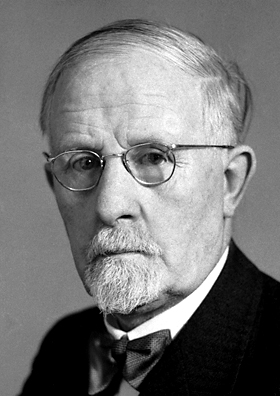Walter Rudolf Hess
Swiss physiologist (1881-1973) From Wikipedia, the free encyclopedia
Walter Rudolf Hess (17 March 1881 – 12 August 1973)[1] was a Swiss physiologist. He won the Nobel Prize in Physiology or Medicine in 1949 for "locating the areas of the brain involved in the control of internal organs". The prize was shared with Egas Moniz. Hess was born on 17 March 1881 in Frauenfeld, Switzerland and died on 12 August 1973 in Locarno, Switzerland.
Walter Rudolf Hess | |
|---|---|
 | |
| Born | March 17, 1881 |
| Died | August 12, 1973 (aged 92) |
| Occupation | Physiologist |
| Known for | Nobel Prize in Physiology or Medicine in 1949 |
By stimulating the hypothalamus of cats with tiny electric currents, Hess induced behaviours. The behaviours ranged from excitement to apathy, depending on the position of the stimulation. He could induce different types of responses in the anterior (lateral) hypothalamus compared to stimulating the posterior ventromedial hypothalamus. When stimulating the anterior part, he could induce fall of blood pressure, slowing of breathing and responses such as wanting food, wanting water, needing to pee and needing to poop. On the other hand, stimulation of the posterior part led to extreme excitement and defensive behaviour.[1]
Hess also found that he could induce sleep in cats – a finding that was highly controversial at the time but later confirmed. His work was important step in scientist's understanding of neurosecretion.
References
Wikiwand - on
Seamless Wikipedia browsing. On steroids.
